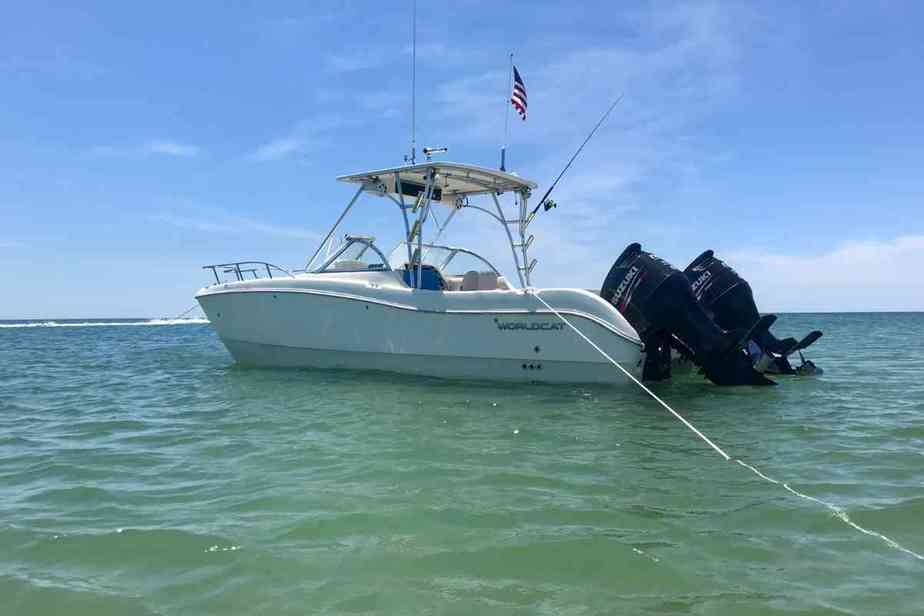Do Boats Go Faster in Saltwater?
If you are a boat owner, countless factors impact the speed and longevity of your boat, predominantly the type of water that will be in direct contact with it. Regardless of if you own a boat or not, the need for speed is thrilling. You might be wondering, where can I get the most thrills?
Do Boats Go Faster in Saltwater?
Do boats go faster in saltwater? No, boats go faster in freshwater because it is less dense. Boats will go about 1-2% slower in saltwater because there is more resistance caused by salt particles. The only exception to this is frozen water. The freezing point of freshwater is higher than saltwater, and therefore, so is the density.
With your engine being made of metal, saltwater will impact your boat in more ways than just slowing you down.
Use this quick read to understand the maintenance your boat requires, protecting it against saltwater, and alternative methods to make your boat go faster!
How to Make Your Boat Go Faster
If the need-for-speed is driving your curiosity, there are a few methods you can implement to increase the speed on your boat. (*These methods are applicable to help your boat to go faster, whether it is on saltwater or freshwater).
A few ways to make your boat go faster are:
- Decrease the Weight Onboard – Weight is a killer on speed. Just as with a truck or airplane, your boat will be weighed down easily. Trim the weight by removing any non-essentials or undeniably heavy items that don’t need to be on board. Removing something redundant can quickly increase your speed by 5+ MPH. (You can also lower weight by filling up your gas tank halfway, but be sure to carry small amounts of back-up fuel.)
- Keep Props Pitch on Upper End of RPM Recommended Rate – RPM is the engine rate for your motor to spin at. Most are around 6,000, but by increasing it by a few hundred RPM, your propellers will spin faster and cause you to go faster.
As a rule of thumb, decreasing the pitch will lead to an increased engine RPM, and vice versa. You can decrease the pitch about 2-3 inches, which will result in a 300-400 increase of RPM.
- Discover the Proper Trim – Most boaters understand that the trimming the motor upwards will increase the speed. However, doing so too much can cause too much air to suck downwards, which slows you down.
The key is to trim upwards very slowly and listen carefully for the ‘proper trim.’ Find the sweet spot for your engine by gradually lowering the engine and listening for the change in sound.
If it’s too high, you will hear the ventilation struggling, but the proper trim level will increase your boat’s speed.
How Saltwater Effects Your Boat
Most boats and large yachts are explicitly manufactured for inshore use – meaning not the vast, wide-open sea.
They are often constructed for the means of freshwater purposes, and then later saltwater adaptions are added to flush out the saltwater.
These flushing agents can only do so much for an inshore boat, leaving you with a gravely impacted saltwater vessel.
Sciencing writer, Bailey Rodriguez, explains that:
“Saltwater corrodes metal five times faster than freshwater does, and the salty, humid ocean air causes metal to corrode 10 times faster than air with normal humidity. Bacteria in ocean water also consumes iron, and their excretions turn to rust.”
Just as road salt impacts engines on land, salt in the water will impact your engine in the water. Many boats are left in the water for years at a time, which can significantly expedite the corrosion process of your engine.
Without proper maintenance, saltwater can negatively impact your boat by causing:
- Anode failure
- Engine surface corrosion
- Iron consumption by bacteria
- Rusted iron
- Engine failure

How Long Can Your Boat Remain in Saltwater?
Many people will allow their boats to float in water for years, even throughout freezing winter months. This can progressively wear down your boat and add damage.
If you don’t lift your boat from the water and store properly in a dry area, your boat will be able to remain in the water for:
- Saltwater – 3 to 4 years
- Freshwater – 10+ years
But you are not without control here. There are precautions and maintenance steps you can take to prolong your boat’s life.
Maintenance Tips to Protect Your Boat from Saltwater
Keep your boat running as it should and save yourself from costly repairs such as an engine replacement. Delay and mitigate expenses by properly caring for your vessel before any severe damage is created.
The tips to protect your boat in saltwater are:
- Always Rinse the Engine After Trips – After every use, take a freshwater hose and run it over the internal and external aspects of the boat. Many boaters will take their saltwater boat out to a freshwater location if feasible, allowing the freshwater to clean the salt off.
If left untouched, this salt will simply sit in your engine and eat away at it. Prolong decay by flushing your engine after each trip.
Tips for your post-trip rinses are:
- Do so promptly after your trip, or else the salt will dry and become much harder to remove.
- Tilt your engine and be sure to rinse underneath.
- Dry everything thoroughly to prevent accelerated rust production.
- Wax Frequently – A few times a season, take the time to wax your boat with a wax specific to your water type (fresh or salt). Many saltwater boat hulls are coated with hard-wearing gel coats; however, this extra step will protect from countless external factors, including the powerful UV rays which beat down on your uncovered boat and accelerate damage.
Wax will protect it from:
- Barnacles attaching
- Salt decay
- Stains
- UV rays
- And increase the efficiency of your future clean-ups
A chart reference for your full maintenance schedule is:
| Frequency | Maintenance on Boat |
| After Each Trip | Rinse your boat will freshwater Scrub the deck with Non-Skid Deck CleanerDry everything thoroughly to prevent rustCover your boat to protect from sun |
| Once a month or 2-3 times a season | Wax your boat |
| After 75 hours of engine use | Clean the filter on your fuelReplace spark plugsInspect everything comprehensively |
| After 150 hours of engine use (or about 1-2 times a season with regular use) | Have professional flushing done on the salt-build-upChange the lower unit oil |
| Annually | Replace the impeller Replace the fuel-water separator |
Final Tips for Boating in Saltwater
A few final tips to keep your boat running in tip-top shape and optimal speed are:
- Never Use Bleach – This will weaken your boat’s hull and is not an appropriate cleaning agent to place in marine ecosystems.
- If You Want to Go Faster – Purchase a freshwater boat or convert your saltwater boat. Salt is the slowing factor in this equation. Remove the salt, and you will go faster. Your boat will last significantly longer in freshwater and be up against many less environmental impacts that cause wear-and-tear.
- If Moving Saltwater Boat to Freshwater – You’ll need:
- Anti-foul bottom paint
- A full-closed cooling system or related freshwater flushing system
- Alternate hardware from marine-grade
- A trailer to safely transport
Again, this is a great way to rinse off your salt between ocean-water uses.
In Conclusion
Things are known for floating more easily in saltwater; therefore, it may seem very counterintuitive that your boat would go slower in saltwater.
Regardless of how insensible it may seem, the density of the salt is what will weigh down your boat and cause premature damage, leaving freshwater vessels to be the safest bet for speed and longevity.
With the proper care and consistent maintenance, your saltwater vessel’s engine can function for more than 1,500 hours before requiring major service.
If you have diesel instead of gasoline, this hourly figure more than triples to 5,000 hours.
